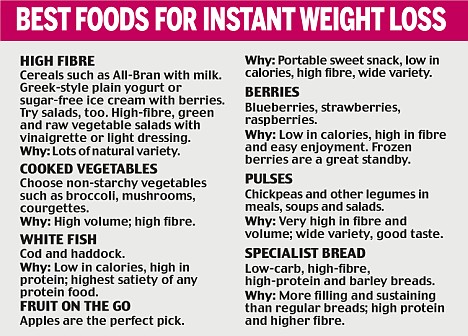The swim suit season pushes scores of otherwise health-conscious women to deprivation diets or intense exercise regimens, often in blazing hot weather, to look slimmer in revealing clothes. Early June and January are the two times of year ladies and girls do crazy, desperate things to get thin fast. They opt for crash diets without realizing the health hazards. Juice diet,7-day colour diet, Cookie diet, Ice cube diet, Purple food diet, Sitcom diet, Wine diet are some of the bizarre diets.

A crash diet is a diet that aims to produce very rapid weight loss in an extremely short period of time, often in around 3-7 days. Crash diet almost always operate on extreme calorie restriction.
- Can become a cause for Gallstone: People who go on an extremely low calorie diet are more likely to develop gallstones than people on a moderately low calorie diet, according to a new study. Dr. Michael Jensen, a professor of medicine at the Mayo Clinic, said dieters typically end up with similar weight loss in the long run whether they use extreme calorie restriction or more moderately restricted diets.
- Harm your heart: Research suggests rapid weight loss (10lbs/week) can slow your metabolism, leading to future weight gain, and deprive your body of essential nutrients. What’s more, crash diets can weaken your immune system and increase your risk of dehydration, heart palpitations, and cardiac stress. Repeated yo-yo dieting can damage your blood vessels. All that shrinking and growing causes micro tears that create a setup for atherosclerosis and other types of heart disease. Liquid diets like, Master Cleanse, Dr. Linn’s liquid formula can cause protein-calorie malnutrition on the heart and atrophy of the heart muscle. Crash diets often lead to a lack of sodium and potassium, which both play key roles in the body’s nerve and muscle function. An extreme lack of these two electrolytes can lead to heart failure.
- Bone Loss/Osteoporosis: A lack of calcium intake that often occurs as part of a crash diet can lead to robbing of calcium from bones or osteoporosis. Many crash dieters suffer broken bones, particularly hips and wrists, as a result of their osteoporosis. If you go for six months or so eating 800 or 900 calories a day, that�s likely to be bad for your bones.
- Drop in Metabolism: Think of your body as a very efficient machine that can accurately sense when you�re taking in too few calories. When you are on a crash diet, your body thinks it�s starving and holds on to every calorie you give it. The little that you eat goes into storage as fat because your body does not know when you are going to feed it again. And worse yet, the longer and more often you stay on a restrictive diet, more fat gets stuck on your body. Multiple cycles of crash dieting, begin to break down muscle faster than fat.
- Heightened moodiness: Crash diet have an extremely harsh effect on your overall mental and emotional health. Not only does crash diet wreak havoc with your mood but they also lead to extreme food cravings: you may end up feeling more irritable or depressed than usual when you are on a crash diet.
- Dehydration: When you deprive your body of food, you end up depriving your body of much needed water. Many foods are rich in water content, like vegetable and fruits, and when they are lacking from your diet, dehydration can set in.
- Brittle Hair and dry skin: Due to the lack of vitamins and minerals that your body receives through a healthy diet, your hair can become terribly brittle and fall out. Skin begins to show early sign of aging.
- Increased Craving of fat: Yo-yo dieting has a definite affect on food preferences, increasing the craving for fat. Fat is the most concentrated source of calories in the diet, and the body appears to store calories from fat more easily than surplus calories from carbohydrates or protein.
- Lowered Immunity: There are girls who can’t even withstand the cool air coming from a fan in a classroom, post a crash diet. They lose their power of immunity and get affected really quickly!

Women should go on a very low calorie diet only under medical supervision, if required.
Disclaimer
The Content is not intended to be a substitute for professional medical advice, diagnosis, or treatment. Always seek the advice of your physician or other qualified health provider with any questions you may have regarding a medical condition.